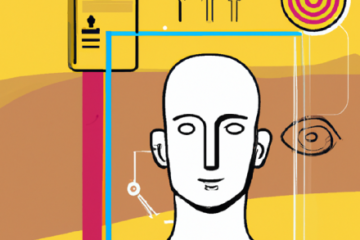6 Parameters & Questions to Judge B2B Client Loyalty
6 Parameters & Questions to Judge B2B Client Loyalty

One of the biggest advantages of using the Net Promoter System is its versatility. Captured once a month, once a year or every day, the Net Promoter System can help you understand customer emotions across the customer lifecycle.
Uncovering insights like customer loyalty, their willingness to refer your business and most of all, their willingness to continue their association with you.
This article will help you assess the loyalty of your customers based on 6 critical parameters:
1. Product/Service Quality

Five hygiene factors dominate the minds of buyers when they are screening potential suppliers. These are service (sales and technical), price, quality, reliable delivery and speedy delivery. Each factor covers a broad range and can be broken down into many more component. Quality, for example, encompasses reliability, durability, finish and design, whilst price includes discounts, credit and allowances.
If the limitations implicit in the broad headings are accepted, it is possible to compare their relative weight across a number of industrial products and services.
What may be as per quality standards for you, may not be the same with your clients. Your clients, are actively listening to the market and constantly benchmarking you with their available options. Here are some sample questions that can help you judge your customers’ loyalty based on Product Quality:
- How likely are they to recommend our products/services?
- How would they rate your i. Relevance & ii. Delivery Promise
2. Expertise

The expertise of a vendor can be further sub-classified under Domain expertise and Industry expertise. Do your clients view your company as a thought leader or a disruptor in the industry?
Domain Expertise can help you in identifying market trends before they happen.
This can in-turn help in enabling you to offer advanced products and services to your customers before your competitors. Industry Expertise, on the other hand, talks about your grey hair of working in your client verticals and how have you impacted that vertical as a whole.
Slacking along any of these will push your customers to choose a vendor who does not. So, how do you assess customer loyalty based on the above parameters? Simply ask them to rate your organization on the following parameters:
- Consultative Approach
- Technical Knowledge
- Functional Knowledge
3. Responsiveness

Responsiveness in its simplest terms is the willingness of the vendors to help their clients by providing prompt service in an attempt to be proactive and responsible for the clients’ success.
There is a significant relationship between the responsiveness of a vendor and the client’s loyalty.
Responsiveness forms a major component of the service quality which has a direct impact on client loyalty. Imagine yourself as an ISP with some large clients that rely their business on your performance metrics. While the contract clearly mentions that x% of downtime would be acceptable by both the parties, but what if you were proactive in letting the clients know of issues in your infrastructure and that you are proactively providing them with an alternate solution for the time being. All of this even without your clients realising the issue. Wouldn’t that build a trust factor with your clients and that they would want to continue their associations with you despite the price fluctuations? This is just a very simple but a strong B2B scenario. There are so many other examples of proactiveness and responsiveness to learn from.
You can gauge your clients’ responsiveness by asking them to rate you on parameters like:
- Were their support issues resolved the last time?
- How satisfied are they with the process of getting issues resolved?
4. Comparison with Competition

While you may be providing the best possible solution, we are often blindsided by the success of our own product to see what our competitors have been up to.
Your clients are often pressured to optimise their expenses and are often on the lookout for the next best option that suits their changing needs and fits their budgeting constraints. For all you know, they may be evaluating vendors right now while you are reading this. So what do you do?
The first thing is to do is silently gauge if they are even thinking of other vendors. Ask them questions like:
- How would they rate your product/services as compared to our competitors?
- Can they suggest ways for you to improve your offerings?
5. Simplicity

The purpose of your product/service in a B2B space is to simplify the existing process or help in reducing the costs of the existing environment. The last thing you want to do as a vendor is over complicate things. In that case, be sure that the client is going to rat the ship on the first instance possible.
Here are some of the questions that can help you gauge the fitment in terms of the business process requirements:
- Does your product/service meet their business objectives?
- To what degree has your product/service reduced the complexity/dependency?
6. Cultural Fitment

Loyal customers come from having amazing experiences with your company. Those amazing experiences come from employees that are engaged and willing to go the extra mile. A majority of companies still haven’t figured out that a ‘Customer-First’ culture can eventually lead to increased profits. That could be your competitive advantage!
Going back to the service profit chain, one can easily infer that the profitability and revenue growth of a company is directly dependent on employee satisfaction.
Here’s how you assess your organization’s culture and the impact of the same on your clients’ business:
- You strive to foster a culture that continually seeks to improve relevance to your clients’ business. How would they rate the same?

Customer loyalty is a driving force behind success, but it does not come easy. You have to treat your clients as humans and not as sales figures. So, just go above and beyond pushing your products and services.
Show customer service excellence and keep the communication lines open. Be a problem-solver and make your business easy to find and interact with. Build emotional bonds across touchpoints and uncover your warm side.
Improving customer loyalty starts by understanding your customers and what they have to say about you. So, talk! Get some feedback and tell them that their voice matters.
Explore how LitmusWorld can help you increase Customer Loyalty through our intelligently crafted solutions.

